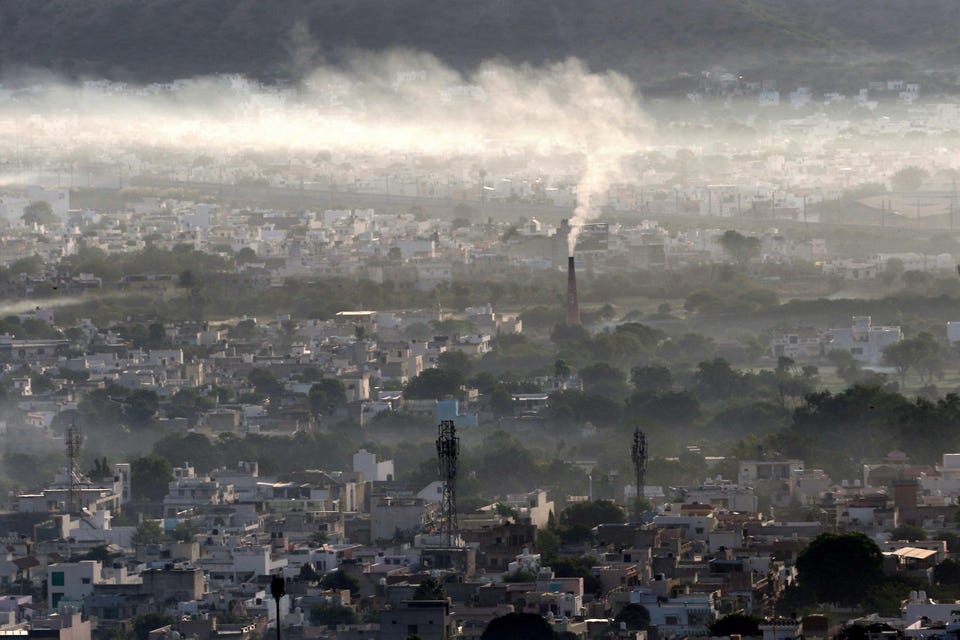Healthcare Real-Time Air Quality Data in Developing Countries Can Protect Public Health Anuradha Varanasi Contributor Opinions expressed by Forbes Contributors are their own. Anuradha writes about environmental health disparities & epidemiology Following New! Follow this author to stay notified about their latest stories. Got it! Oct 29, 2022, 04:03am EDT | New! Click on the conversation bubble to join the conversation Got it! Share to Facebook Share to Twitter Share to Linkedin Smoke billows from a factory chimney during smoggy morning in Ajmer on November 2, 2020.
(Photo by . . .
[+] Himanshu SHARMA / AFP) (Photo by HIMANSHU SHARMA/AFP via Getty Images) AFP via Getty Images Every year, over 4 million deaths are associated with high levels of air pollution — particularly in developing countries where there is a severe dearth of air quality data. In a new study published in the journal Proceedings of the National Academy of Sciences , researchers found that when air quality data was accessible in some small pockets of areas within developing cities where there was little monitoring of real time data, it led to substantial reductions in fine particulate matter (PM) concentration levels. This eventually resulted in decreases in the premature mortality risk that was faced by over 300 million residents in cities that have a U.
S. embassy where air monitors were installed. According to the World Health Organization (WHO), more than 90% of the world’s population are exposed to toxic air.
In 2008, the United States had first installed an air quality monitor in Beijing and began tweeting real-time data on an hourly basis. Less than a decade later, PM levels in the city have been drastically cut down after the local government proactively took steps to clean Beijing’s air. “Around 30 per cent of countries had at least some form of monitoring by 2018, but that includes monitoring that is intermittent, only covers a small part of the country or isn’t available publicly,” said the study’s author, Dr Andrea La Nauze from UQ’s School of Economics , in a press release.
Since 2008, the U. S. has installed over 50 air quality monitors that record data of local areas in cities around the world.
“We estimate that embassy monitors led to reductions in fine particulate concentration levels in host countries of 2 to 4 µg/m 3 . Our central estimate of the annual monetized benefit of the decrease in premature mortality due to this reduction in pollution is $127 million for the median city in 2019,” the researchers wrote in their study. “Our findings point to the substantial benefits of improving the availability and salience of air-quality information in low- and middle-income countries,” they added.
At present, India has the world’s most polluted cities where cities like New Delhi, Mumbai, and Kolkata have extremely high levels of fine particulate matter (PM2. 5) and ozone pollution. At present, these major cities are still grappling with the challenges of limited air quality data.
MORE FOR YOU $100M Magic: Why Bruno Mars And Other Stars Are Ditching Their Managers Hainan Has Another Duty-Free Mall—It Is The Biggest In The World The Memo | Forbes: Tech’s Turbulent Week; Adidas Drops Ye And The End Of iPhone Charging Cables Follow me on Twitter . Anuradha Varanasi Editorial Standards Print Reprints & Permissions.
From: forbes
URL: https://www.forbes.com/sites/anuradhavaranasi/2022/10/29/real-time-air-quality-data-in-developing-countries-can-be-life-saving/



